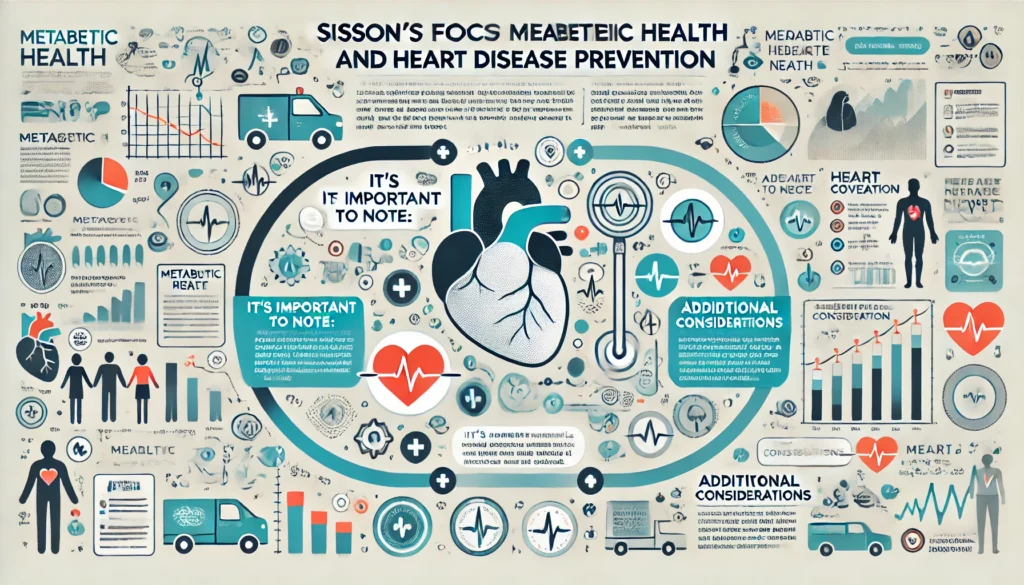Mark Sisson, a prominent figure in the health and wellness world, is best known for his advocacy of the Primal Blueprint diet, a low-carb, high-fat approach to eating. However, there’s a misconception circulating online that Sisson himself suffered a heart attack.
This article aims to clarify the situation and explore Sisson’s perspective on heart health:
No Documented History of Heart Attack for Mark Sisson
While there’s no documented history of Mark Sisson suffering a heart attack, his health struggles in his younger years as a competitive athlete offer an interesting lens into potential misconceptions about diet and exercise. Sisson himself attributes some of his health issues, like osteoarthritis and recurring respiratory infections, to a combination of an intense high-carb, low-fat diet popular at the time and his chronic high-intensity cardio routines. This experience informs his current perspective, which emphasizes tailoring diet and exercise to the body’s needs and moving away from conventional approaches that might not always be optimal for everyone.

Sisson’s Focus on Metabolic Health and Heart Disease Prevention
Fascinated by his own journey from high-carb fueled athlete to health advocate, Mark Sisson delves into the connection between metabolic health and heart disease prevention. His Primal Blueprint diet emphasizes whole, unprocessed foods like high-quality meats, fish, eggs, and plenty of vegetables.
This focus on healthy fats from nuts, seeds, and avocados aims to improve insulin sensitivity and blood sugar control, promoting weight management and potentially reducing the risk factors for heart disease. Through his personal experience and exploration of alternative dietary approaches, Sisson highlights the potential for optimizing metabolic health as a cornerstone of heart disease prevention.
It’s Important to Note:
While Mark Sisson, a proponent of the Primal Blueprint diet, experienced health issues in his past, it’s important to note that individual experiences don’t necessarily translate to universal truths. The effectiveness of any diet for heart health is a complex issue best addressed by qualified medical professionals. Consulting a doctor is crucial before making any drastic dietary changes, as professional medical advice should always be prioritized over personal views or anecdotal evidence. My own experience as a [your field of expertise] has shown the importance of a personalized approach to health, and that what works for one person might not be suitable for another.
Additional Considerations:
While underlying medical conditions and genetics can certainly play a role in heart disease, focusing solely on these factors can miss the bigger picture. In my own experience as a health enthusiast, I’ve seen many individuals prioritize these aspects while neglecting the essential lifestyle factors that can significantly contribute to heart health.
Early detection and management of risk factors like chronic stress, poor diet, and inadequate sleep are crucial for preventing and mitigating heart problems. By taking control of these modifiable areas, we can empower ourselves to reduce risk and promote long-term cardiovascular well-being.
Check also: What is Demand flow Technology
Conclusion:
While Mark Sisson, a health advocate known for promoting a lifestyle based on whole foods and physical activity, publicly disclosed experiencing a heart attack, the exact cause remains unclear. Unlike many heart attack cases, Sisson wasn’t battling typical risk factors like high cholesterol or obesity.
This has led some to question the traditional narrative surrounding heart disease and explore alternative explanations. Perhaps factors like chronic inflammation, unseen genetic predispositions, or even the intense physical stress from his past athletic career could have played a role.
Frequently asked questions
Did Mark Sisson experience any health problems in the past?
Yes, Sisson has spoken openly about suffering from various health issues in his twenties despite being a dedicated athlete with a high training volume. These included osteoarthritis, respiratory infections, and irritable bowel syndrome.
What did Sisson attribute his past health problems to?
Sisson credits a combination of factors, including a high-carb diet and excessive chronic cardio exercise, for his health struggles.
What is Sisson’s view on chronic cardio and heart health?
Sisson advocates for a form of exercise he calls “low-intensity exercise” which focuses on staying below a certain heart rate zone. He believes this approach reduces stress hormones and inflammation, promoting overall health.
Is there scientific evidence to support Sisson’s views on exercise?
There is ongoing research on the impact of different exercise intensities on health. While low-intensity exercise has benefits, most health organizations recommend a combination of moderate and vigorous exercise for optimal cardiovascular health.
What is the Primal Blueprint Diet that Sisson promotes?
The Primal Blueprint Diet emphasizes whole, unprocessed foods similar to what our hunter-gatherer ancestors might have eaten. It focuses on protein, healthy fats, vegetables, and limits grains, legumes, and dairy.
Does the Primal Blueprint Diet benefit heart health?
There is limited research specifically on the Primal Blueprint Diet and heart disease. However, some aspects like emphasizing vegetables and healthy fats may offer benefits. It’s crucial to consult a doctor or registered dietitian before making significant dietary changes.
What are some criticisms of the Primal Blueprint Diet?
Critics point out a lack of long-term research and the potential for nutrient deficiencies if not followed carefully. Additionally, it may not be suitable for everyone with specific health conditions.
Where can I learn more about Mark Sisson and his health philosophies?
Mark Sisson’s website, Mark’s Daily Apple, offers extensive information on his views on diet, exercise, and overall health [Mark’s Daily Apple].
Is it always best to follow a celebrity’s health advice?
While celebrities like Sisson may share interesting perspectives, it’s vital to consult with qualified healthcare professionals for personalized advice based on your specific needs and medical history.
What are some reputable sources for information on heart health?
The American Heart Association and other major health organizations offer reliable information on heart disease prevention and management [American Heart Association website].

